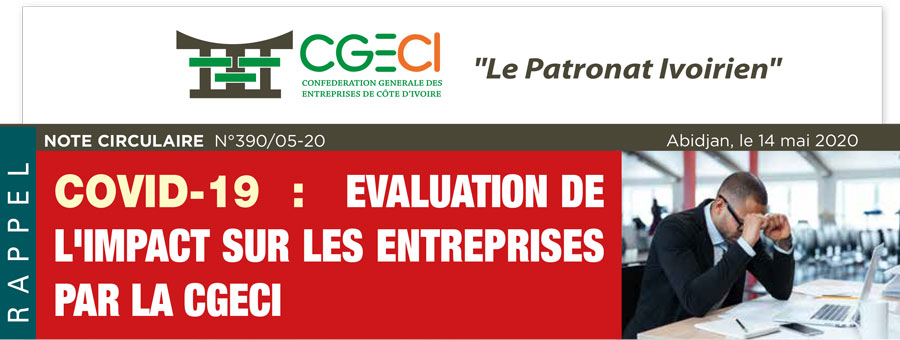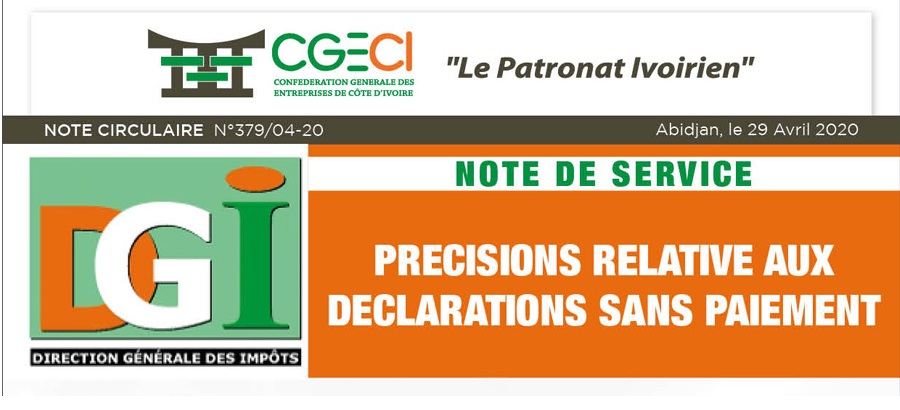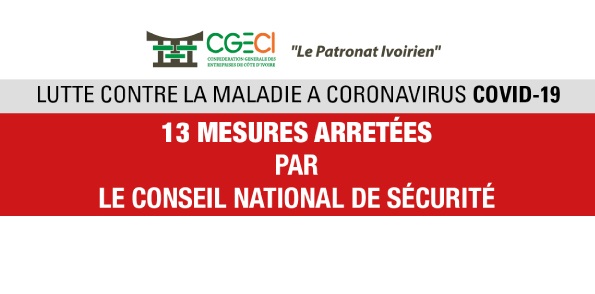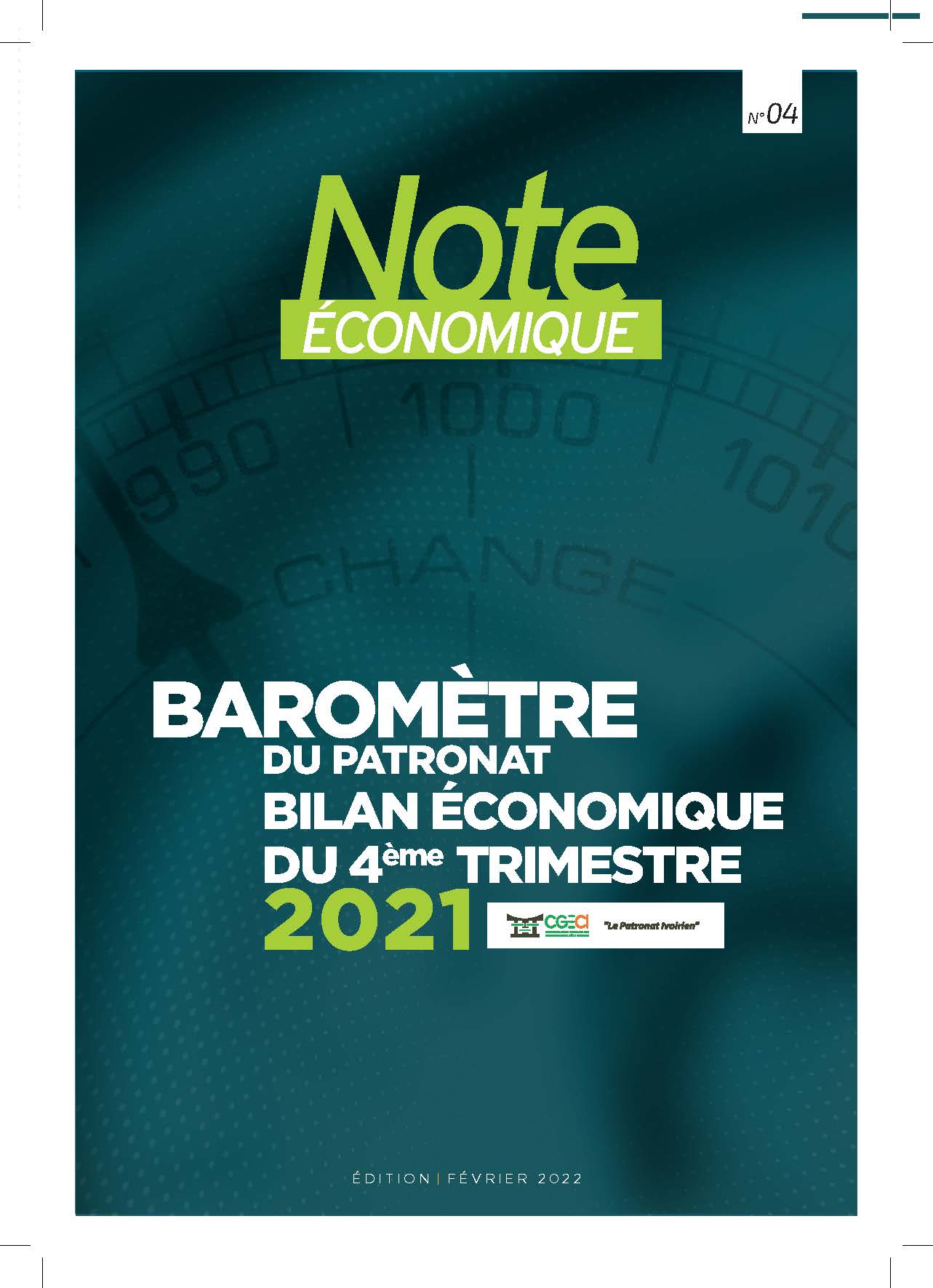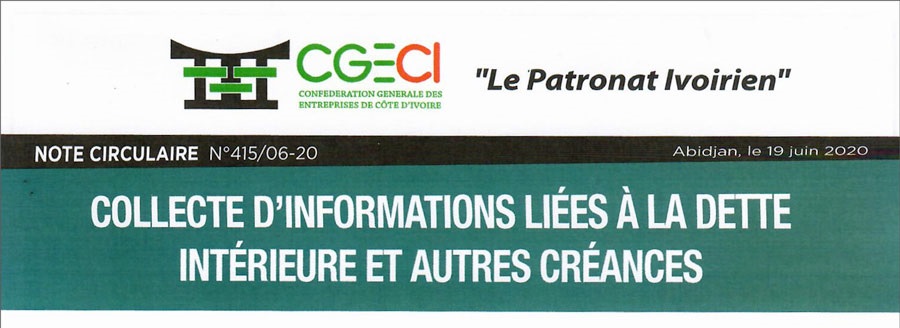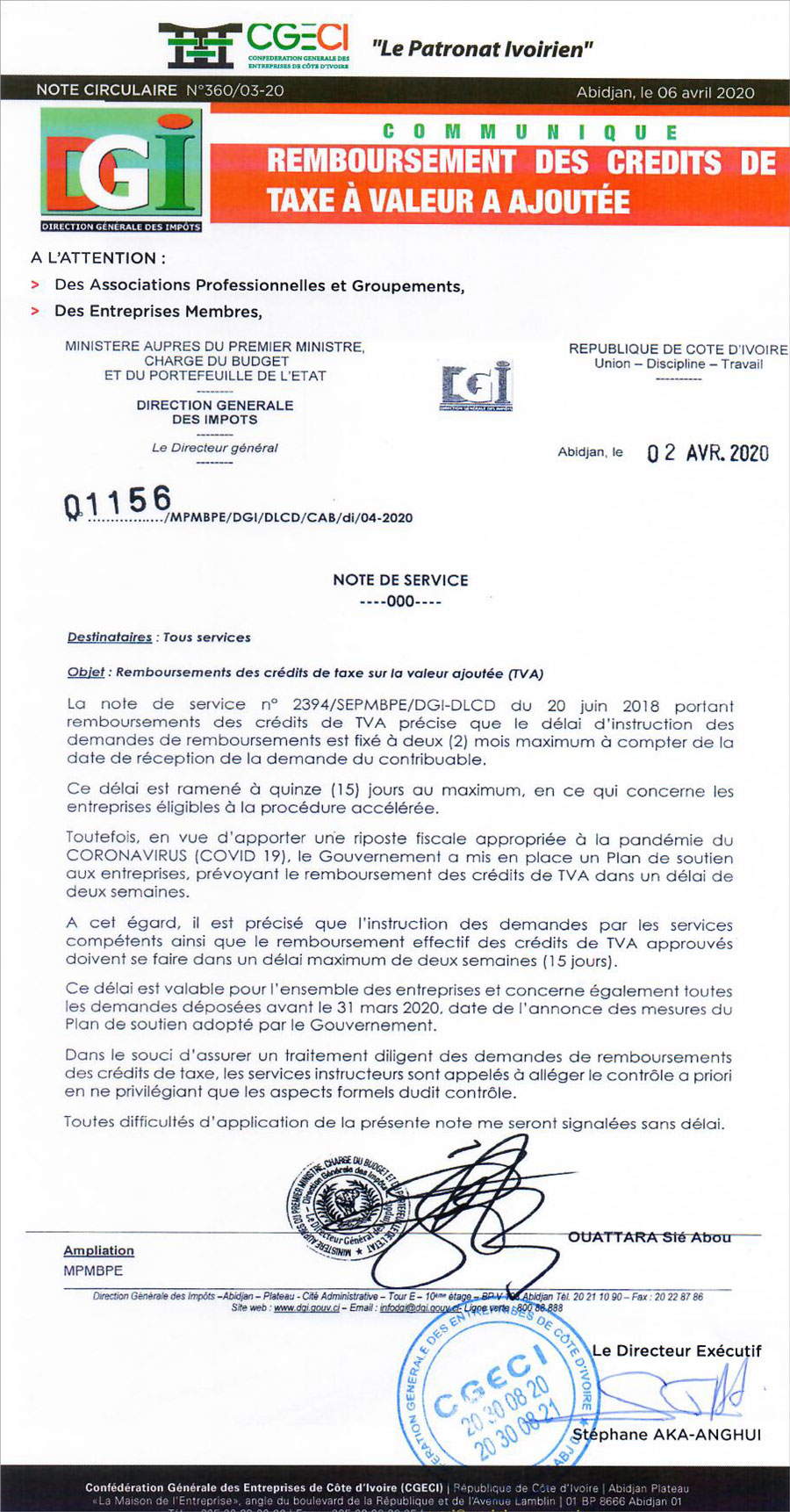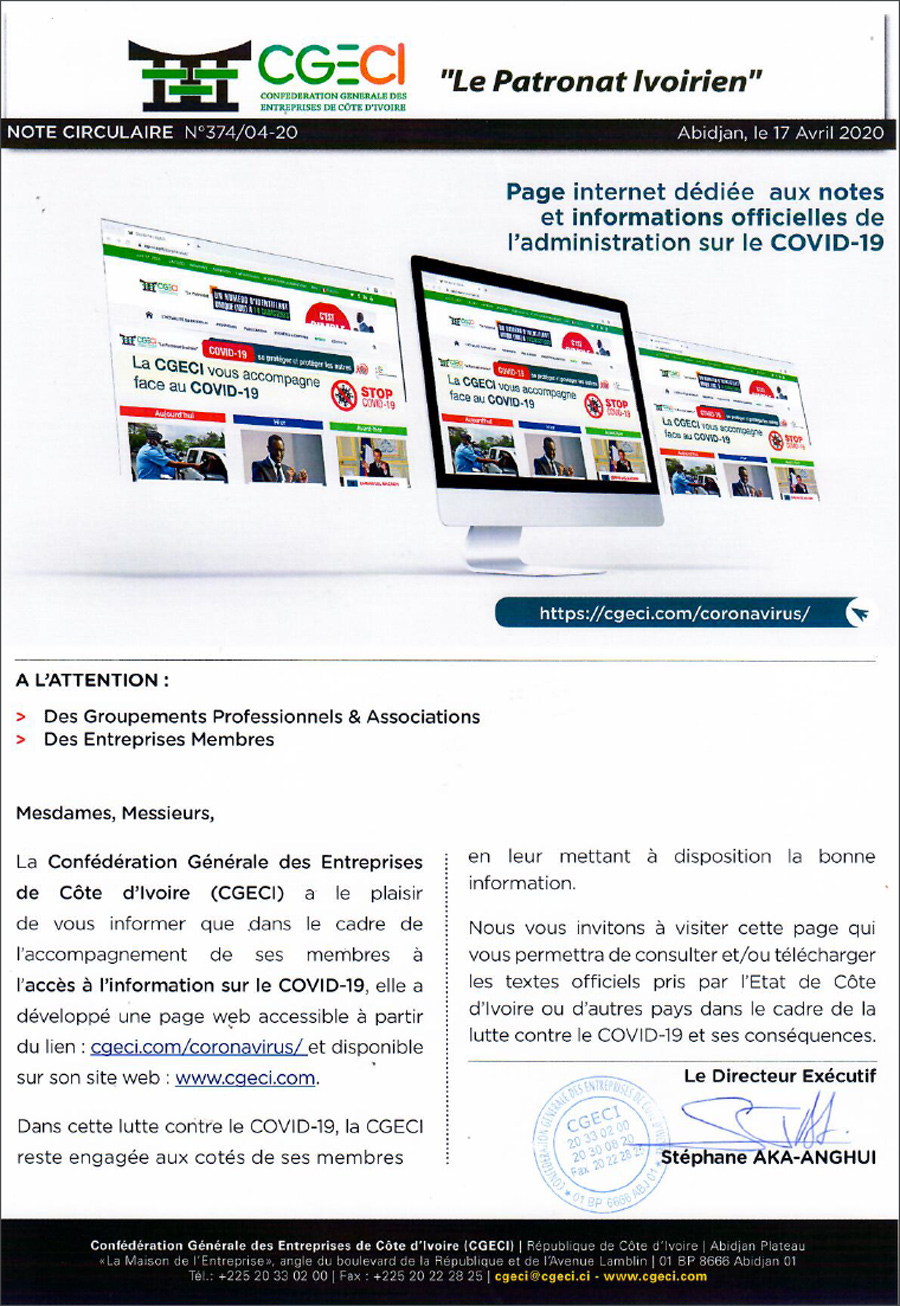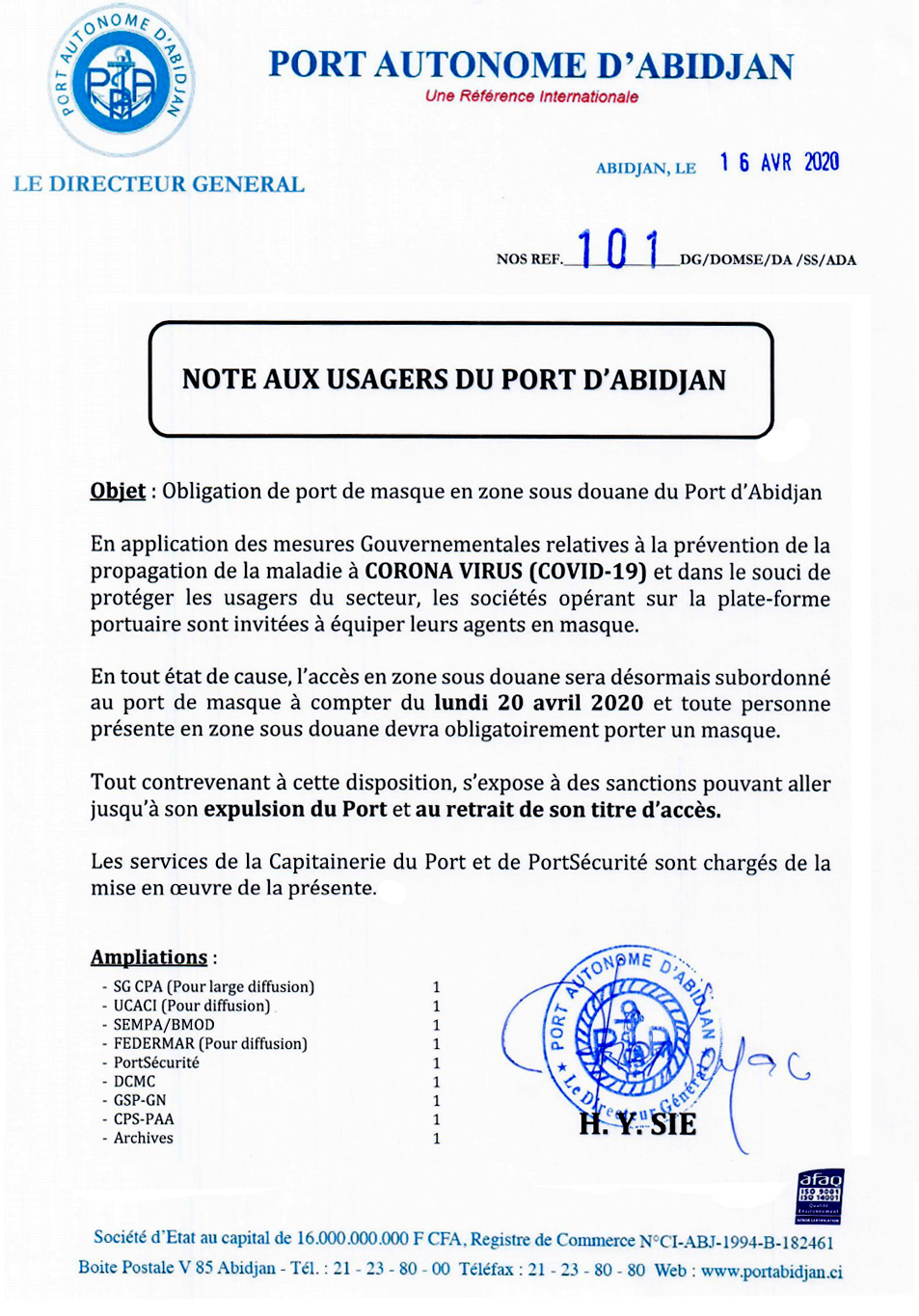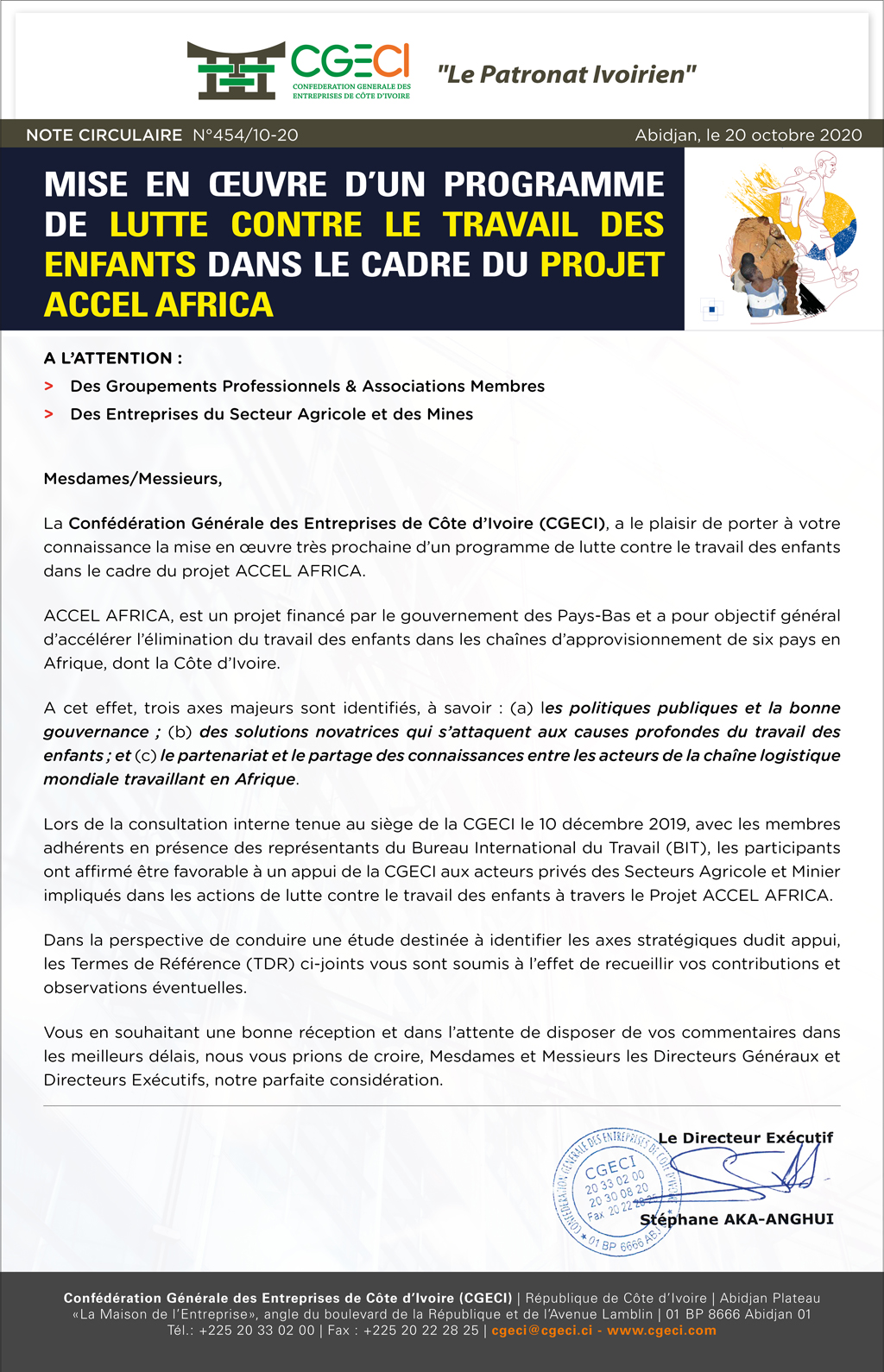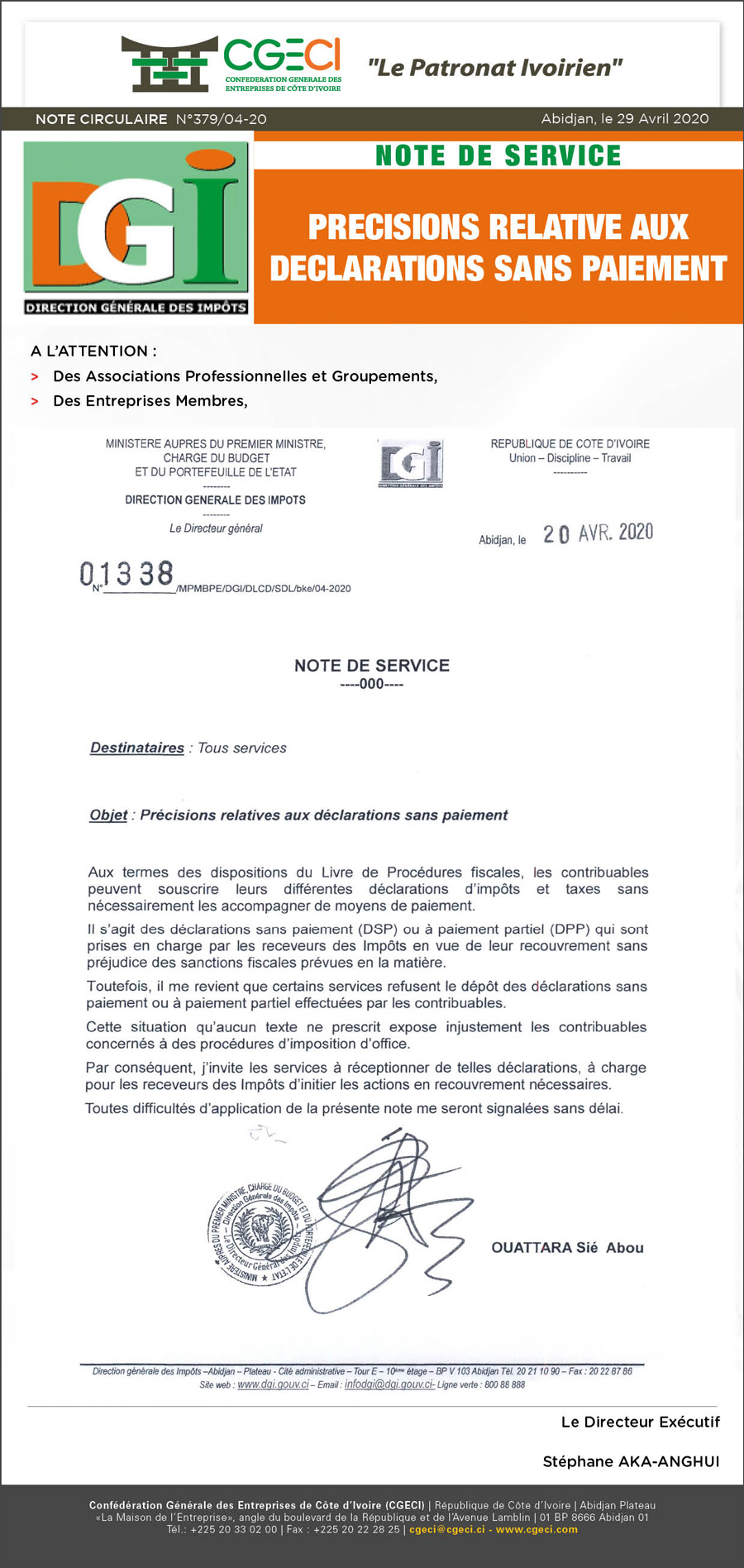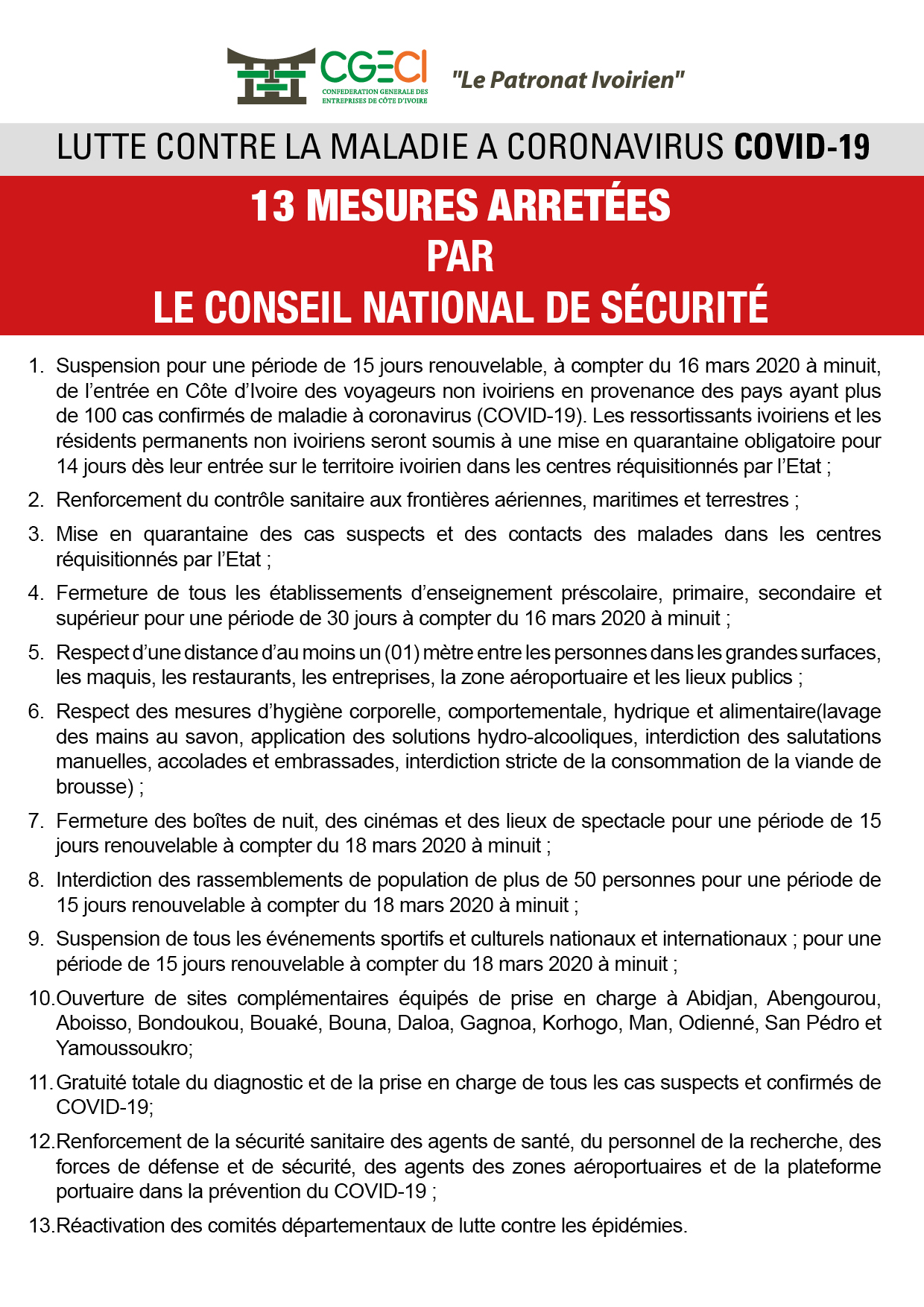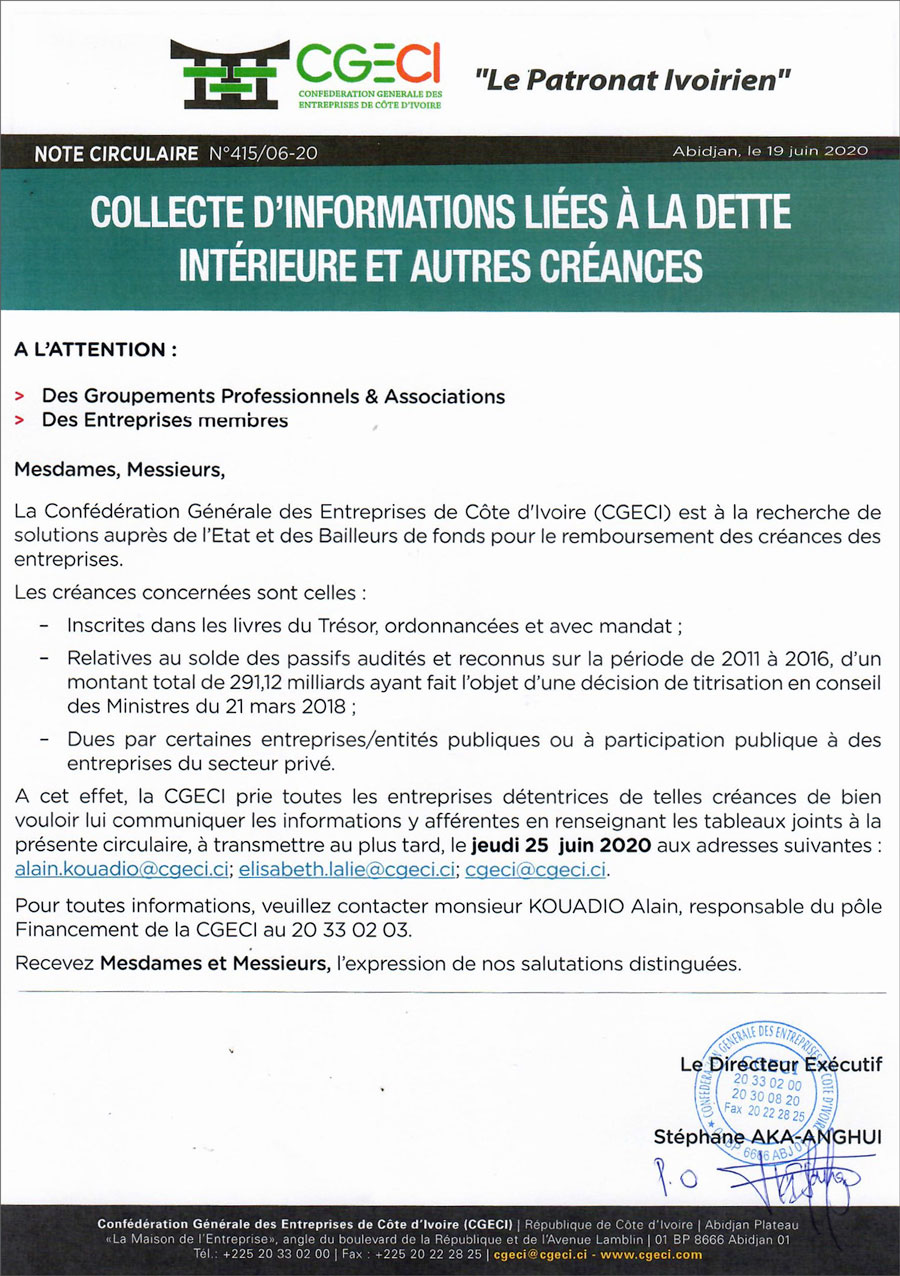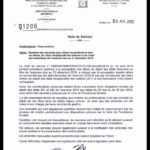The Ivorian Government takes new measures of development of the conditions for access to public procurement for SMEs.
Full text of the Communication from the Department to the 1st Minister responsible for the Budget
The SMEs means under the Act on March 24th, 2014 2014-140 « any company, producer of goods and market services, which employs permanently less than two hundred (200) people and performing an annual turnover excluding tax not exceeding one billion FCFA (1 000 000 000) ».
They occupy a significant part of our formal enterprises. The strategy of development of our economy, it seems so important to focus on the promotion of SMEs and in particular our local businesses. Indeed, the development of our businesses will no doubt contribute to create national champions able to compete internationally, to reduce the rate of youth including unemployment and develop entrepreneurship in Côte d’Ivoire.
Côte d’Ivoire was world ranked 44th summer on the indicator « entrepreneurship » of the Doing Business report, but this performance will take its full dimension when the access by SMEs to public procurement will be strengthened, knowing that opportunities are not lacking.
This note aims to present a State of play of the current situation and our proposals to strengthen the access of SMEs to public contracts.
I. STATE OF PLAY: DIFFICULTIES OF ACCESS OF SMES TO PUBLIC CONTROL
1.1. Times long procurement and inappropriate thresholds
Rated at 322 days in 2013, the procurement period does not allow SMEs to bear the costs of commitments from banks or insurance without certainty of winning a contract. In addition, the thresholds in force involve a significant volume of markets subject to the a priori control of the DMP (threshold of procurement: 30 000 000 CFA FRANCS for all subject to the Code of public contracts, threshold of a priori control of markets by the DMP: 100 000 000 CFA FRANCS).
1.2. Time limits for obtaining and validity of unsuitable administrative certificates
Delays in obtaining of certain administrative documents, including tax and social security certificates can reach in some cases more than 2 months and validity periods are short (tax certificate: 4 months, social certification: 1 month). Thus, despite the fact that they are in good standing with regard to the Administration, it happens that some SMEs don’t get however their certificates in time to participate in public tenders. Ensure that their tenders are rejected at the stage of the preliminary examination by the folds and judgment of offers opening Commissions (COJO).
1.3.High cost of financial expenses related to the guarantee for tenders
One of the difficulties encountered by SMEs in public procurement remains the high costs financial costs generated by participation in public tenders, including those relating to the provisional guarantee.
II. PROPOSALS TO SIMPLIFY THE ACCESS OF SMES TO PUBLIC PROCUREMENT
2.1 higher thresholds of contracting, validation and approval of public procurement
The raising of the thresholds in force would reduce the volume of contracts subject to the a priori control of the DMP and to increase the share of transactions below the procurement subject to procedures more accessible to SMEs. This does not, however, prevent competition at the level of SMEs. After simulation the proposed Threshold are:
- Threshold of public procurement: 100 000 000 CFA FRANCS for all those subject to the Code of public contracts (compared to 30 million currently), with the exception of the local authorities for which the threshold of procurement is maintained at 30 million FCFA
- Threshold of a priori of the markets by the DMP control: 300 000 000 CFA FRANCS (against 100 million currently), subject to the review of the DAO by DMP from hundred million CFA FRANCS
- Cut-off of markets by the Minister in charge of procurement: 300 000 000 CFA FRANCS ($ 100 million currently). The application of these different thresholds will be an order.
2.2 The development of conditions of requirement and the time of validity of administrative parts
Today, administrative records are required for the opening of the bids. In other words, if these documents are not available, the company can even participate in the tender. To reduce the rejection of tenders from SMEs when examining preliminary of the OCOG for lack or not validity, we offer tax and social security certificates are required at the time of market approval. In addition, the time of validity of these parts will be extended as follows:
- For the tax certificate: validity period will be 6 months from the date on which the company presents a regular situation against 4 months now
- For the social certification: the period of validity will be 3 months from the date of validity against 1 month currently. .
However, the documents, when required, must be presented within a period of 15 days (according to the timescale for the procedure in 88 days). This provision exists in several countries including Burkina Faso, Mali, the France and the Morocco.
2.3 the booking of contracts to SMEs by means of a quota
To increase the share of contracts won by SMEs, we propose that the contracting authorities reserve annually a part of their budget to SMEs including applying a rate of twenty per cent (20%) to the predictive value of the works, supplies or services eligible expenses to the procurement. However, this is not a requirement for contracting authorities. Accordingly, we propose that an annual assessment of this measure is presented in Council of Ministers on the part of the market reserved for SMEs.
2.4 the introduction of a margin of preference for local subcontracting
Subcontracting provided for in article 53 of the Code of public contracts to promote the access of SMEs to public contracts is often not implemented by larger companies. We therefore propose to encourage big business to subcontract part of their markets (30% of the total value) by providing, on calls for tenders, a margin of preference on the price does not exceed 5%. This margin may preferably be combined with the Community preference margin without that such cumulation does not exceed 15%. This mandatory provision allows our SMEs to improve their technical capabilities alongside large firms to be in even in the future to carry out the work themselves.
2.5 Reduced costs of provisional guarantee
To reduce the financial costs generated by participation in public tenders, including those relating to the provisional guarantee, the new proposed rate is 1% to 1.5% (from 1% to 3% currently that matches the regulatory window from UEMOA).
Such is the economy of the measures proposed in the order submitted for your approval for the development of the conditions for access to public procurement for SMEs in Côte d’Ivoire.
Your instructions would require me









